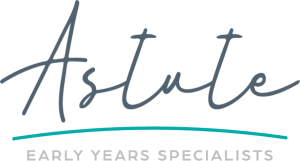
Hey everyone from the Astute team!
We’ve just wrapped up another busy season supporting centres through their NQF assessment preparation, and honestly, there’s nothing quite like the feeling of seeing a centre director breathe a sigh of relief when they tick off that final checklist item. Over our morning coffees (in the break room that’s probably seen more policy reviews than a government office), we’ve been reflecting on what we’ve learned from helping dozens of early childhood centres navigate their 2025 NQF assessment preparation.
Here’s what struck us during a recent consultation: a centre director told us, “I thought I was ready, but then I realised I was missing half the documentation I actually needed.” Sound familiar? You’re definitely not alone. That’s exactly why we’ve put together this comprehensive guide – because every centre deserves to walk into their assessment feeling confident and prepared.
The Challenges We’re Helping Centres Navigate:
Let’s be honest – NQF assessment preparation can feel overwhelming, especially when you’re running a busy centre. Our directors are juggling real challenges:
- Ensuring all documentation meets the 2025 National Quality Framework requirements
- Training staff on updated compliance procedures
- Organising years of records and policies
- Meeting new environmental and safety standards
- Preparing children, families, and educators for the assessment process
We’ve been right there with our centres, working through these challenges systematically. Sometimes it’s as straightforward as helping them understand which documents the assessor actually needs to see. Other times, it’s supporting them through a complete policy overhaul to ensure everything aligns with current legislation.
Your Step-by-Step NQF Assessment Preparation Guide
Phase 1: Documentation Deep Dive (Start 6 Months Before)
Policy and Procedure Review: Your policies are the backbone of your NQF compliance. Our quality improvement consultants recommend starting here because policy gaps can impact multiple quality areas. Here’s what needs your attention:
- Review all policies against current legislation and National Quality Standard requirements
- Ensure policies reflect your actual practices (assessors will notice inconsistencies)
- Update family communication policies to include current contact methods
- Verify all mandatory policies are current and accessible to staff
- Cross-reference policies with your quality improvement plan to ensure alignment
Staff Records and Training Documentation: This is where many centres discover gaps. We’ve learned that organised staff records make the assessment process so much smoother:
- Verify all educator qualifications are current and properly documented
- Ensure first aid and CPR certifications haven’t expired
- Document all professional development activities with evidence of learning outcomes
- Confirm Working with Children Checks and other mandatory clearances are valid
- Create a training matrix showing how staff development supports quality improvement
Child Records and Learning Documentation: Your documentation of children’s learning and development tells the story of quality education in action:
- Ensure all enrolment forms are complete and signed
- Review individual learning portfolios for evidence of planning cycles
- Verify health and medical information is current
- Document how you’re meeting each child’s individual needs
- Ensure family input is evident in planning and evaluation processes
Phase 2: Environment and Safety Setup (Start 4 Months Before)
Physical Environment Assessment: Walk through your centre with fresh eyes – better yet, ask a colleague from another centre to do a walk-through with you:
- Check all safety equipment is functional and within expiry dates
- Ensure indoor and outdoor environments support the developmental needs of all children
- Verify adequate supervision sight-lines in all areas
- Review risk assessments for all spaces and activities
- Document how your environment promotes children’s agency and independence
Health and Safety Compliance: This area requires meticulous attention to detail, but it’s absolutely crucial:
- Test all safety equipment and document results
- Review and update risk assessments for all activities and excursions
- Ensure medication administration procedures are current and followed
- Verify emergency evacuation procedures are practised and documented
- Check that all hazardous materials are stored safely and appropriately
Phase 3: Educational Program and Practice Review (Start 3 Months Before)
Learning Program Documentation: Your educational program should clearly demonstrate how you’re supporting each child’s learning and development:
- Document your planning cycle and how it responds to children’s interests and needs
- Evidence how you’re implementing the Early Years Learning Framework
- Show connections between observations, planning, and implementation
- Demonstrate how you’re supporting children’s transitions
- Document family involvement in the learning program
Quality Practice Evidence: This is where your everyday practice really shines through:
- Collect examples of intentional teaching moments
- Document how you support children’s emotional regulation
- Evidence-inclusive practices for all children
- Show how you’re building children’s independence and agency
- Document collaborative learning experiences and group projects
Phase 4: Team Preparation and Professional Development (Start 2 Months Before)
Staff Training and Readiness: Your team is your greatest asset during an assessment. Make sure everyone feels confident and prepared:
- Conduct team meetings about the assessment process
- Review roles and responsibilities during the assessment
- Practice answering questions about quality practices
- Ensure all staff understand the National Quality Standards
- Provide support for any team members who feel anxious about the process
Communication Systems: Clear communication systems support quality outcomes and assessor understanding:
- Review how you communicate with families about children’s learning
- Ensure documentation systems are accessible and well-organised
- Prepare summaries of quality improvement initiatives
- Document how you gather and respond to feedback from children, families, and staff
- Create systems for ongoing communication during and after the assessment
The Stuff We Wish Every Centre Knew (But Often Gets Overlooked)
The “Ah-Ha!” Moments from Our Centre Work:
Assessment Day Isn’t About Perfection: The centres that handle assessments most successfully understand that assessors want to see genuine quality practice, not a performance. Your everyday routines, authentic interactions with children, and real problem-solving approaches are exactly what assessors are looking for.
Documentation Tells Your Quality Story: Centres that document their quality practices effectively find it much easier to demonstrate their strengths during assessments. Photos of children engaged in learning, examples of how you’ve supported individual children’s needs, and evidence of family involvement all help tell your unique quality story.
Preparation Reduces Stress: The most confident centre teams are those who’ve prepared systematically. When you know where all your documentation is, understand your quality practices clearly, and have practiced discussing your program, the assessment becomes a professional conversation rather than an anxiety-inducing interrogation.
Continuous Improvement Is Ongoing: Successful centres use their NQF assessment preparation as an opportunity for genuine reflection and improvement. They don’t just prepare for the assessment; they use the process to strengthen their quality practices for ongoing benefit to children, families, and educators.
Team Collaboration Makes Everything Better: The smoothest assessment experiences happen in centres where the entire team understands and contributes to quality practices. When educators can confidently discuss their practice and demonstrate quality interactions, assessors see authentic quality in action.
Your Final Month Checklist
Four Weeks Before:
- Finalise all documentation and create easy-access folders
- Conduct a complete centre walk-through checking all safety and environmental aspects
- Hold team meetings to discuss assessment expectations
- Prepare families for the assessment process
- Review your quality improvement plan and recent achievements
Two Weeks Before:
- Confirm all policies are accessible and current
- Test all safety equipment one final time
- Ensure all staff are clear on their roles during assessment
- Prepare any additional documentation the assessor has requested
- Create a calm, organised environment ready for professional review
Assessment Week:
- Ensure all team members are present and prepared
- Keep normal routines as much as possible for children’s comfort
- Stay available for assessor questions and requests
- Document the assessment process for your own records
- Maintain open communication with your team throughout
What We’re Learning About NQF Assessment Success
The Quality Connection:
Here’s what’s exciting us – centres that approach NQF assessment preparation as genuine quality improvement rather than just compliance tend to see better long-term outcomes. They’re not just meeting standards; they’re using the framework to enhance children’s learning and development experiences.
The Team Impact:
Professional development that comes from NQF assessment preparation strengthens your entire team. We’ve seen centres where the preparation process led to improved communication, clearer understanding of quality practices, and stronger collaborative relationships.
The Family Benefits:
Centres that prepare thoroughly for NQF assessments often find their family communication improves too. When you can clearly articulate your quality practices and demonstrate your commitment to continuous improvement, families develop stronger confidence in your service.
Ready to Start Your NQF Assessment Preparation?
We know that preparing for your National Quality Framework assessment can feel daunting, but remember – you’re already doing quality work with children and families every day. This preparation process is about organising, documenting, and reflecting on the excellent practice that’s already happening in your centre.
If you’re feeling overwhelmed or want professional support through your childcare compliance checklist, our team at Astute Early Years Specialists is here to help. We’ve supported hundreds of centres through their NQF assessment preparation, and we’d love to help you feel confident and ready for your 2025 assessment.
What aspects of NQF assessment preparation are you finding most challenging? What systems have worked well in your centre? We’d love to hear your stories and learn from your experiences!
From all of us at Astute Early Years Specialists – supporting quality practice, one assessment at a time.
